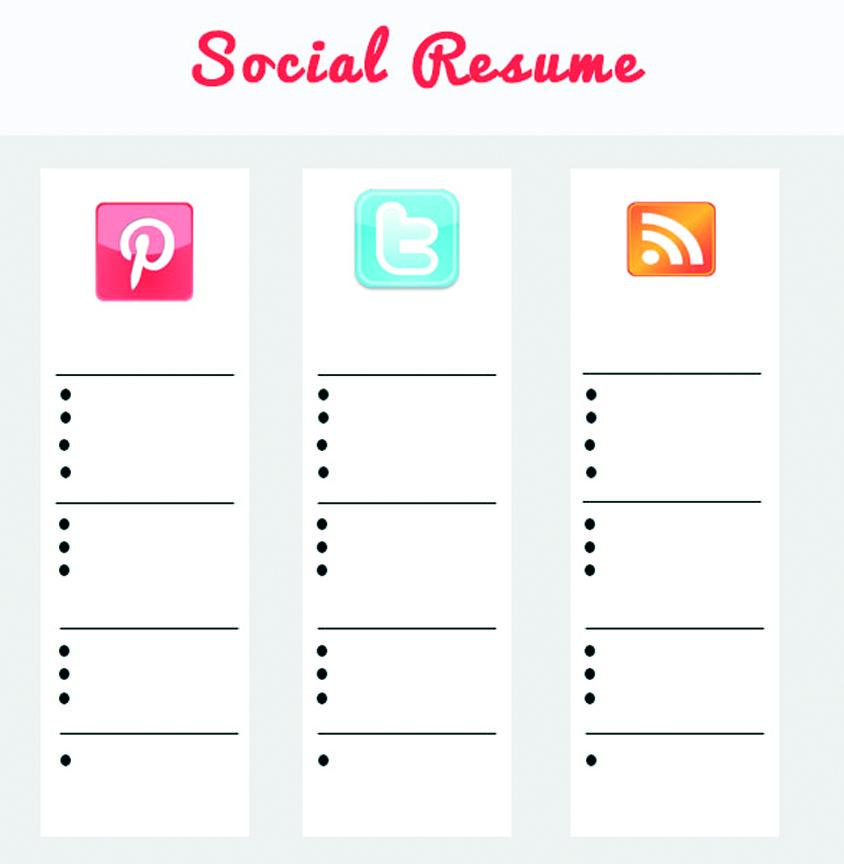- Candidates
- Login
- Set Up Account
- Create a Job Alert
- Search Tools
- Resources
- Employers
BUILDING A SOCIAL RESUME
by Ashley Collins, Education and Marketing Specialist, AgCareers.com
After years of telling young professionals how to use social media to their advantage more than their disadvantage, we’ve finally arrived! More of you are using social media to share professional information about internships, industry news, ag-vocacy efforts, and more.
You are building your professional network by connecting with employers, managers, and faculty via LinkedIn; uploading presentations to SlideShare; and video resumes to YouTube, not to mention all the great blogs that are out there! All of these online activities can be a great way to share your love for the industry with millions and are also a fantastic way to promote yourself for career opportunities by developing a social resume.
The social resume is merely an additional form of your traditional resume and is a not-too-distant cousin to the online resume. As is mentioned in the title, a social resume will put more emphasis on your social media activity, not to be confused with your clubbing, date night, and partying social activities!
Career Cloud, a web site tool for developing social resumes, provides this explanation of a social resume, “Your paper resume is what you did. Your social resume is who you are.” Social resumes are centered on your personal and professional activity and influence, via social media, relative to your chosen profession.
Beyond focusing on your social media influence, the social resume allows you a little more freedom to demonstrate creativity.
For example, instead of headers that outline your work experiences, group your content based on your social activity.
Use separate headings for Pinterest, Twitter, and your blog. Within each of those areas include information about how many re-pins you have, select information about highly trafficked boards, names of influential followers, number of followers of your blog, etc.
Don’t forget referrals and comments. Pull keywords from those statements and include them as descriptors of your work on that particular site. One area that definitely defines the difference between a traditional and social resume is the layout and look of the resumes. Creating an effective social resume comes with the liberty to use catchy designs and layouts for the information

If you are an avid Twitter user, mirror the look of a Twitter newsfeed or match the look of your blog, or incorporate images that match your area of interest.
There are social media web communities where you can house your social resume, but you’ll also find that many of the social media platforms you are already using provide an outlet or space where you can link to or post your social resume. And where else is better to be found than at the source!
As with a traditional resume, be mindful of spelling errors and typos. Additionally, you’ll want to make sure all of your links work properly.
Just like with a traditional resume, recruiters are taking a quick glance, if they click on a dead or broken link that leads to “Page Not Found” don’t assume that they’ll invest the extra time to hunt down the correct page.
A few key points to keep in mind before developing your social resume are: do you have the volume of social media presence to warrant a social resume? There isn’t a magic formula for calculating this so use your best judgment.
If your personal Facebook account is your main and primary medium for sharing information, then you may not be ready to tackle a social resume. But if you share industry related info via your personal Facebook account, a company or group Facebook account, Twitter, and/or Instagram, and you have a high volume of quality followers and people engaging with your material, then you certainly are well-equipped to develop a black belt level social resume.
Secondly, are you using social media platforms that align professionally with the type of career you are pursuing? You may be a fantastic pastry chef and have hundreds of cake decorating tips on Pinterest with hundreds of followers and re-pins, but if you are seeking a career in human resources, those two interests may not pair well together for a recruiter looking to hire someone to manage their company employee policies.
Thirdly, are you truly committed to your social media presence?
Developing a social resume that links to outdated material could cause more damage than good for your job hunt.
Those who are posting content on a regular basis, and have no desire to scale back, will be more successful at making an impact with their social resume.
Referencing numbers like your Klout score, Twitalyzer ranking, or Edge Rank will help drive home the reach of your activity on your social resume.
In closing, remember that a social resume is a great way to illustrate your social media reach, but it remains important that you also have a traditional resume to support your knowledge and experiences.